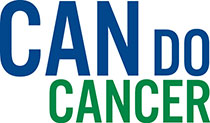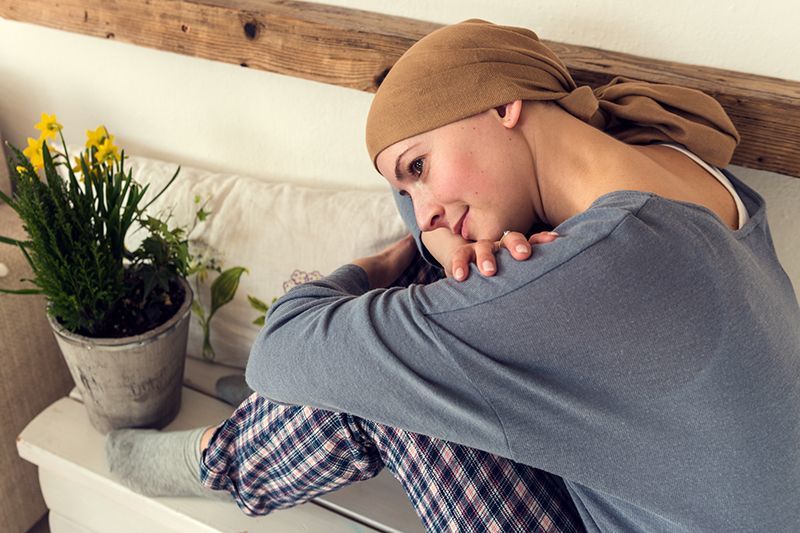After a breast cancer diagnosis, you may have friends and family offering to help, but if you haven’t gone through cancer treatments before, you may not know what to ask for.
Here are some things you might find useful for surgery and chemotherapy.
For Surgery
-
ZIP-UP SHIRTS WITH POCKETS
Mastectomy patients will likely leave the hospital with a drain tube coming out of each removed breast. Shirts or sweatshirts with pockets (inside pockets work best) provide a safe place to put the drain bulb(s) so the tubing doesn’t catch on anything. In addition, zipper shirts are easier to get on and off. After surgery, it may be difficult to raise your arms to put on shirts that go over the head.
-
CAMISOLE
Breast surgery will make your chest and arms sore. Some people wear camisoles for support or as a soft layer over their incision. You may be offered a special camisole at the hospital that has pockets to hold drain bulbs.
-
VARIETY OF PILLOWS
Having surgery on your breast(s) can make your favorite sleeping positions uncomfortable. You may need to find new sleep positions. A variety of pillows (down/feather, soft) are helpful so you can move them around to support you and get comfortable. At times after surgery, during treatment and during the reconstruction process, sleeping in a slight upright position can be helpful, which may require four or five pillows.
-
SEATBELT CUSHION/SMALL PILLOW
A seatbelt may not feel good on your port (if you have one) or surgical site. A small pillow/seatbelt cushion put in between you and the seatbelt can help.
-
JOURNAL AND CAMERA
Some women find it meaningful to document their cancer journey, writing about how they feel and taking pictures as their body changes throughout their cancer journey.
-
SET UP A METHOD OF COMMUNICATING WITH FRIENDS AND FAMILY
Updating friends and family about your condition can be repetitive, and sometimes you may not feel like talking on the phone. Some people email updates to their support system. Others find it helpful to designate a friend to be responsible for providing updates to friends and family. Some people set up a personal web site to provide updates and share photos. Setting up a web page is free and easy at www.carepages.com. You select your privacy settings so you can make your page viewable to only people that you invite.
-
BE AWARE OF LYMPHEDEMA
Breast cancer patients that have radiation treatments or lymph nodes removed during surgery are at risk for lymphedema, an accumulation of lymphatic fluid. Symptoms of lymphedema may include a heavy or achy feeling in an arm, a tight sensation in a hand or arm, hand or arm swelling, or decreased flexibility. Often, a first sign of lymphedema is noticing shirt sleeves or jewelry that feels tight. Another sign can be skin that pits with finger pressure. Lymphedema can have serious implications; tell your doctor if you have any signs.
For Chemotherapy
-
HAIR CATCHER FOR YOUR SHOWER OR BATHTUB
A couple weeks after beginning chemotherapy, hair typically begins falling out rapidly. Before chemotherapy treatment starts, you may want to purchase a hair catcher to put over your drain so your shower or bathtub drain doesn’t get clogged with hair.
-
GENTLE SHAMPOO/BABY SHAMPOO
Scalp sensitivity or irritation is common during hair loss. You may want to purchase a gentle cleanser or baby shampoo. Even after hair loss, shampooing the scalp is recommended.
-
WIGS AND HATS
If you are planning to wear a wig or hats, do your shopping before chemotherapy begins. Most likely, you will need to order your wig in the right size and color, so make sure to leave enough time for it to come in before you begin losing your hair. In addition, many women sleep with a hat on because their head feels cold without hair. You may want to purchase a couple soft hats to sleep in.
-
TLC WEB SITE AND CATALOG
TLC Tender Loving Care is a not-for-profit website and catalog of the American Cancer Society that sells wigs, mastectomy bras and products, as well as hats and scarves at reasonable prices. It also includes helpful how-to instructions. Go to www.tlcdirect.org or call 800-850-9445 to request a catalog.
-
DENTAL CARE
If you need any dental work done, you may want to do it prior to starting chemotherapy. You will be more susceptible to infection and some people get mouth sores/sensitivity during chemotherapy.
-
Patients with a port (small device placed surgically under the skin just below the collarbone, for taking blood and receiving IV treatments) may want to wear clothing that allows for easy port access on the day of treatment. Shirts that button or zip work well. Cardigans can also work well if you want to cover the port up while not in use. Sweatshirts with zipper chest port access are another good option (see link above).
-
GUM, MINTS AND HARD CANDIES
You will likely experience a metallic taste in your mouth at some point during chemotherapy treatments. Strong gum, mints or hard candies can mask the taste and make it more manageable. You might develop an aversion for a type of candy you’ve used once, so it can be helpful to bring a different type to each treatment.
-
FOOD
It is important to try to maintain a healthy diet during treatment. Chemotherapy may cause food to taste differently so you may not want to stock up on food until after you determine what you can tolerate. Try bland foods that don’t have a strong smell, such as breads, crackers, muffins, applesauce, pears…etc.
-
PLASTIC UTENSILS, PAPER PLATES AND CUPS
Some people that get a metallic taste in their mouth during blood draws or chemo develop sensitivity to metal in their utensils. Using disposable utensils can solve this. Not having to do dishes is also a perk when you’re not feeling well.
-
FROZEN GRAPES, SLUSHIES, POPSICLES
Some doctors recommend having something cold in the mouth while receiving a specific chemo drug to prevent mouth sores. If this is needed, your nurse will tell you and will likely offer you ice chips the first time. Sometimes using ice chips the second time will bring back feelings of nausea so some patients try something different each time they receive that drug. Some people suck on frozen grapes, drink slushies or eat popsicles to help. Popsicles are usually provided; if you want something different, you will need to take it and keep it cold.
-
SHEET OR THIN BLANKET
Treatments can cause women to feel warm and sweaty on a regular basis. You may find it is more comfortable covering up with a sheet or thin blanket instead of getting under covers.
-
LIP BALM
Lips can get extremely dry and crack. Due to the body’s inability to heal as efficiently, a crack in the lip can take substantial time to heal, especially if it’s in the corner of the mouth where it breaks open each time you eat. Try to avoid this by keeping your lips moisturized, especially in the corners of the mouth.
-
LOTION
Some chemotherapy treatments can cause extremely dry, flaky skin. Using moisturizer on a regular basis can help.
-
LUBRICANT AND CONDOMS
Along with dry lips and skin, if you have sex, you may need additional lubrication. Make sure it is water-based to reduce the possibility of irritation. Also, use condoms to protect your partner. Chemotherapy medications can be excreted during intercourse. Discuss this with your doctor.
-
HAND SANITIZER
Chemotherapy can affect a person’s ability to fight off infection. Use hand sanitizer regularly after going anywhere. You will want to keep a small bottle in your purse or car. Friends and family should wash their hands or use hand sanitizer before visiting you.
-
ACID REDUCER (prescription or over the counter)
Chemotherapy kills good and bad cells, which affects your digestive tract and can increase acid in your system. If you are nauseated and find that you are less nauseous if you eat small items every couple hours, you might benefit from taking an acid reducer. Ask your doctor.
-
THINGS TO DO WHILE RECEIVING TREATMENTS OR WHEN YOU’RE NOT FEELING LIKE GETTING OUT
Find magazines, crafts, movies, music or whatever you enjoy to help pass the time.
-
CUTE UNDERWEAR, NECKLACES, EARRINGS, NAIL POLISH, SCENTED LOTION, NEW PAJAMAS
Hair loss and breast loss can leave women feeling not very feminine. Find things that help you feel more feminine. (NOTE: some manicure/pedicure salons are not diligent about sanitizing tools. If you have your nails done, tell them you need all tools sanitized before your manicure/pedicure to ensure that you don’t pick up an infection and bring your own polish to prevent cross contamination). If you have a massage and had lymph nodes removed, make sure the massage therapist is trained in lymphatic massage.
-
SOFT TOOTHBRUSH
Chemotherapy can cause mouth sores and sensitive gums. It may be helpful to use a new, soft toothbrush.
-
FREEZER FRIENDLY MEALS
If you feel like cooking, double the recipe and freeze meals. Or, if people bring you meals, ask for items that will freeze well. That way, you can have meals on hand when you don’t feel like cooking. Chemotherapy medications can change your taste preferences; simple, bland foods may be more tolerable.
-
COORDINATION OF MEALS
If you have friends and family that want to help with meals throughout treatment, you may want to consider using a free meal scheduling web site, such as www.mealtrain.com so you don’t receive multiple meals on the same day.
-
STOOL OR CHAIR IN THE BATHROOM
You may not have a lot of energy on some days. A stool or chair in the bathroom will allow you to sit down while getting ready.
-
THERMOMETER
You should keep a thermometer on hand in case you feel like you have a fever, which can be a sign of infection.
-
NECK PILLOW
A supportive neck pillow may allow you to rest more easily during long treatments.
-
SCENTED OIL
Scented oils, such as lavender, can have calming effects. Dab a bit of oil on a soft cloth and bring it to treatment for a nice distraction and pleasant smell to offset the medication.
-
SUNSCREEN
Some chemotherapy medications cause sensitivity to sunlight. Wear sunscreen if you are going to be outside.

